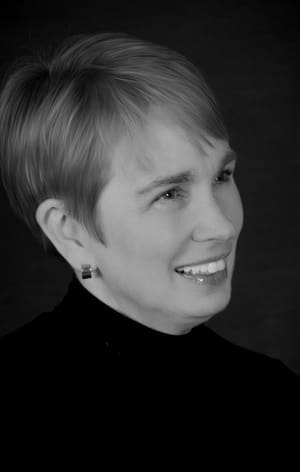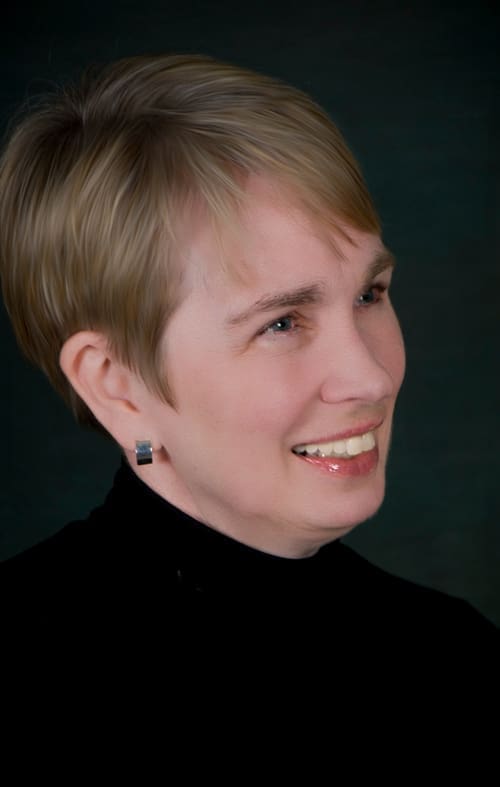 Susan VanZanten is Professor of English at Seattle Pacific University. She is the author, most recently, of Mending a Tattered Faith: Devotions with Dickinson (Cascade) and Joining the Mission: A Guide for (Mainly) New College Faculty (Eerdmans).
Susan VanZanten is Professor of English at Seattle Pacific University. She is the author, most recently, of Mending a Tattered Faith: Devotions with Dickinson (Cascade) and Joining the Mission: A Guide for (Mainly) New College Faculty (Eerdmans).
In your work, what are you creating, and what are you cultivating? (In Andy Crouch’s vernacular, what new culture are you making, and what good culture are you conserving and nurturing?)
Susan VanZanten: As a professor of English literature, I devote most of my work life to nurturing the reading of great works of literature, by authors such as Emily Dickinson, Herman Melville, Jane Austen, J.M. Coetzee, and Chimamanda Ngozi Adichie—to mention a few whose works I “profess.” As a teacher-scholar, I help others encounter, understand, and savour the truth and beauty in literary texts. My greatest contribution to the development of new culture comes second and even third hand through the lives of the thousands of students I have had the delight of teaching. The drops of wisdom and knowledge that I’ve contributed to their ocean of abilities advance God’s kingdom of shalom in countless ways as they go on to be pastors, business people, writers, physicians, lawyers, missionaries, teachers, counselors, and homemakers. A more recent creative undertaking is a book that reflects devotionally on selected poems of Emily Dickinson.
Who is the “public” for your work—who is it for, and how does it affect the lives of those who engage with it?
Both the students in my classrooms and anyone who reads my work are part of my public. I teach at a Christian university, and the majority (but not all) of my students are believers, but they are often at different and difficult stages of their faith journey. I try to help them become better readers, writers, and thinkers because those are important ways in which they can live up to their full potential as children of God. Encountering literature is a rich way in which they can enjoy God’s world, God’s gifts, and the human community, even as they learn more about themselves and their responsibilities to and for others. During recent years, I’ve also spent a lot of time working with other Christian college professors in faculty-development programs addressing the particular opportunities and challenges found at teachings-centred, mission-driven Christian institutions. The public for my writing and scholarship—who knows? In many ways, that’s the most mysterious and faceless public, and it ranges from general Christian readers, to Christian graduate students, to secular academics in the field of American or African literature. My prayer is that my work will encourage people to live faithful and thoughtful lives that help advance God’s kingdom.
Why do you do what you do?
Because it is what God has equipped me to do by virtue of my intellectual talents, personal abilities, and educational opportunities. Teaching and writing are the ways in which I’ve found I can best glorify God, find joy and fulfillment, and play my small part in advancing shalom. Being a college professor is my vocation, which may perhaps be best confirmed by the fact that I’m actually employed as a college professor!
What skills, proficiencies, and virtues does this work develop in you?
Despite almost thirty years of doing this work, I find that I still learn new things every day; I continue to hone my reading abilities and writing skills with every new book, poem, or project I tackle. Professing literature stimulates me to think theologically (why should a Christian read literature?) and pastorally (how can I best reach and serve my students and readers?). I genuinely aspire to but don’t always achieve the virtues of patience, humility, and endurance. Perhaps one of the hardest lessons to learn has been to be content with not knowing the impact I make, of living with deferred achievement. A surgeon, an accountant, a carpenter, an event planner—the fruits of such labour are readily apparent. I teach a class, write an essay, or publish a book, and I may not know that it has affected anyone’s life significantly and positively for ten or twenty years, if ever. This may be why I enjoy gardening so much.
What five books would you recommend to someone interested in understanding or pursuing the sort of work you do?
I dislike promoting my own work, but my Joining the Mission: A Guide for (Mostly) New College Faculty is about the only book out there that attempts to describe the diverse responsibilities, tasks, and delights of a Christian college professor. Arthur Holmes’s classic The Idea of a Christian College, George Marsden’s The Outrageous Idea of Christian Scholarship, and Parker Palmer’s The Courage to Teach provide good glimpses of parts of my life. And Jane Smiley’s Moo is a hilarious academic novel that rings all too true to some of the darker sides of the professorial life.
What do you do for fun?
I’ve discovered a passion for gardening in the past five years, so I spend a lot of time in my small Seattle yard, where I grow fruits, vegetables, and herbs, delight in the vivid palate of my Dutch bulbs and cutting garden, and conserve the Pacific Sound’s salmon habitat with my rain garden. After visiting the Sissinghurst Castle in England last year, I’ve become inspired to create a white garden this summer. I love to tour gardens and spent a blissful day at Kew Gardens last July, too. My escapist reading habits tend toward murder mysteries featuring women detectives, and the Maisie Dobbs series is one of my current favourites. Living in the Pacific Northwest, I have the gift of being able to ski, snowshoe, hike, and camp in some of the most beautiful parts of God’s creation. I’ve given up cooking, but I continue to enjoy dining out with friends, and a splendid meal with joyful fellowship often leaves me feeling as if I’ve been granted an appetizer of the great banquet to come.


